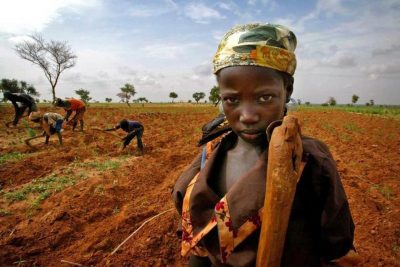By
Alpha Jallow
The Food and Agriculture Organisation of the United Nations (FAO) and its partners launched a new regional project to improve the livelihoods and economy of rural populations in the Sahel and the Horn of Africa during a two-day meeting held in Addis Ababa, Ethiopia between 30th November and 1st December.
“Africa is blessed with a suitable, if not abundance of, natural resources wealth,” highlighted Dr Jane Edeme, Deputy Director for Rural Economy and Agriculture of the African Union in a message to the participants, “and even though it is home to some of the fastest growing economies, the number of hungry people has gone up in 2014. Now, with the effects of El Niño, the challenge to change this is daunting. The African Union Commission voices its unreserved support for policies and strategies aimed at building resilience.”
“In both the Sahel and the Horn, the majority of the population are dependent on farming and pastoral activities, both of which are particularly susceptible to shocks. Given the commonalities characterising these two regions, it is imperative to adopt a unified approach, while also addressing issues specific to each area to tackle food insecurity and build community and household resilience,” declared Patrick Kormawa, FAO Sub-regional Coordinator for Eastern Africa and Representative to the AU and UNECA.
Establishing a robust and effective partnership with CILSS and IGAD
The food and nutrition security situation in Africa’s dry lands, particularly in the Sahel and the Horn of Africa, remains a major concern, marked by both chronic and acute vulnerabilities. Recurrent crises, mainly driven by climatic shocks, volatile food prices, conflicts, coupled with poverty and chronic vulnerabilities, have eroded the coping capacities of the subsistence farming populations and weakened their livelihoods.
“It is time for action, in a collective manner, to do things differently. Drought should never turn into famine in our region, and we need to share information and initiatives to deal with the harsh reality,” said Dr. John Kabayo, IGAD, Coordinator IDDRSI Platform. “It is important to know that there are no boundaries in climate change, and we need to be part of the same strategy, as this project sets out to do.”
The objective of this newly launched project is to boost the identification and scaling-up of the most relevant and effective interventions for building up resilience of households, communities and agricultural systems and to eradicate food and nutrition insecurity in the Horn of Africa and Sahel regions. This will be done by establishing a more robust and effective partnership between the CILSS and IGAD, including the establishment of knowledge platforms. By sharing expertise and evidence-based, scientifically generated recommendations through this project, governments and the development community will be able to minimise the risk of climatic shocks, volatile food prices and conflicts.
“There have been a succession of food crises, and it is not only the Sahel countries being affected, there is a larger context, and there is a need for precise indicators to measure the complex idea of resilience. Setting up this program answers a wish of the Sahel to set up a political body around this issue, to build up resilience” stated Issoufou Baoua, CILSS Expert Analyst, AGRHYMET.



No Comments Yet!
You can be first to comment this post!